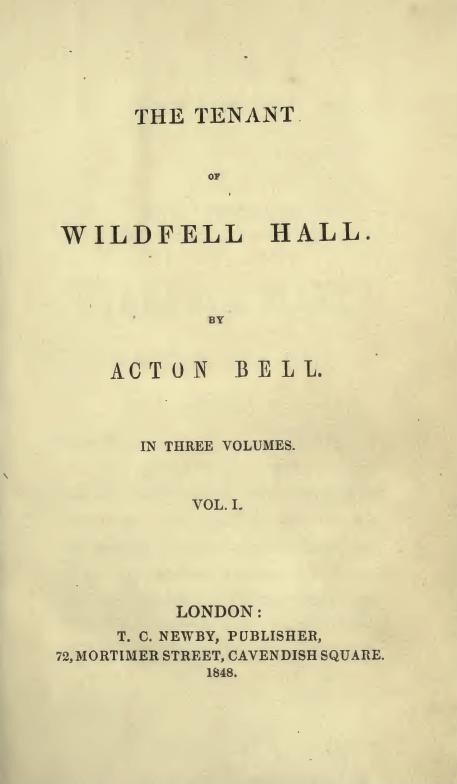This was the first novel I ever read by Anne, the lesser known of the three Brontë sisters. I wasn’t sure what to expect, but I’d really enjoyed the other Brontë novels that I’d read. Now that I’ve finished The Tenant of Wildfell Hall, I actually think that Anne might be my favourite of the three – compared to Jane Eyre and Wuthering Heights (the other Brontë novels I’ve read), I think this one has a storyline much more grounded in reality, and with a better message to it.
The story is told through a series of letters, in which a man named Gilbert Markham writes to a friend to tell him about the goings on in the small countryside town where he lives. Markham is particularly intrigued by an enigmatic woman who moves into a dilapidated old building in the area (Wildfell Hall) along with her young son. Though she tries to lead a very solitary existence, Markham and his friends and family begin to absorb her into their social circles, and Markham strikes up a bond with she and her son. Little by little, clues about her past are revealed, and eventually the perspective shifts and you read her diary and find out what circumstances brought her to the hall.
I don’t want to spoilt too much about her history, but the titular Tenant of Wildfell Hall, Helen Graham, is by far the coolest character in the book, and, in my opinion, one of the best female characters in all nineteenth century literature. She is a flawed character who has made some mistakes, but somebody who has learned from those mistakes and grown as a person. Without going into too much detail, she takes a stand against misogyny and does things which would make her a social outcast, but everything she does is done in the name of fairness, and she remains a person of strong moral convictions throughout. She’s so cool.
I’ll admit that the ending was slightly too cliché for me (and that Markham isn’t really the ‘nice guy’ he thinks he is), but it’s fairly standard for its time, and overall I was very impressed with it. It’s a book which takes a stand against domestic abuse and which highlights the injustices faced by women at the time and which, sadly, will still be faced by women today. A progressive novel with a powerful message of kindness and compassion that I strongly reccommend.
Rating: 8.9/10

